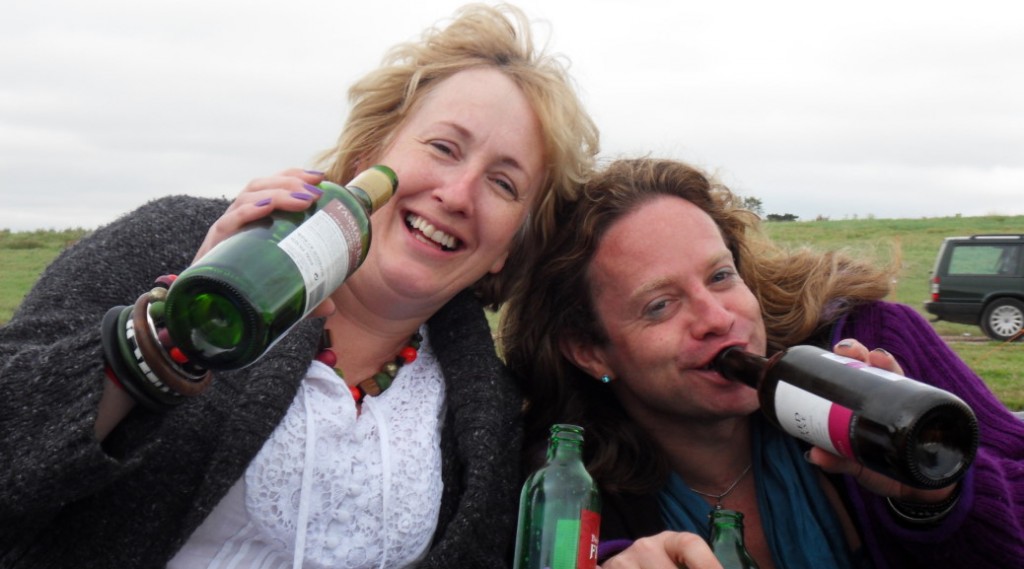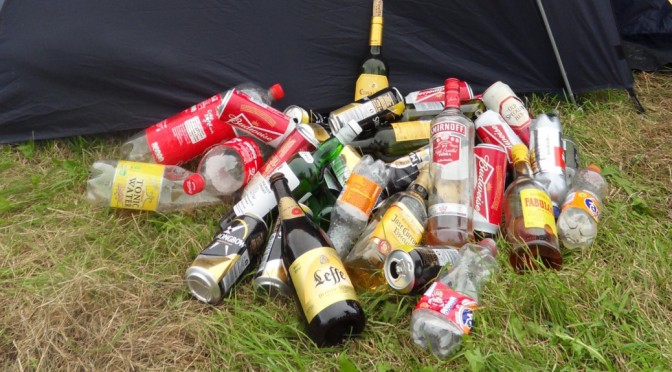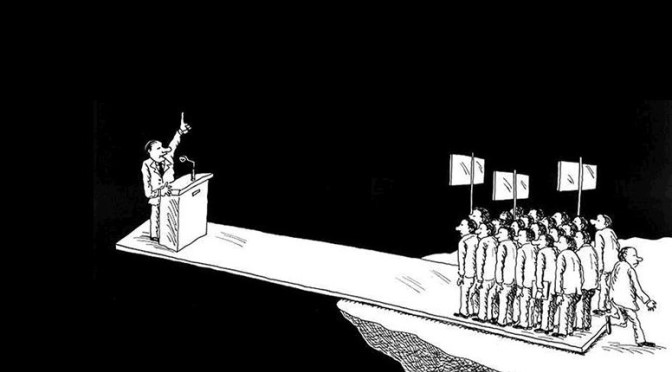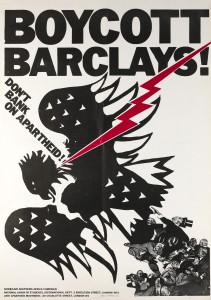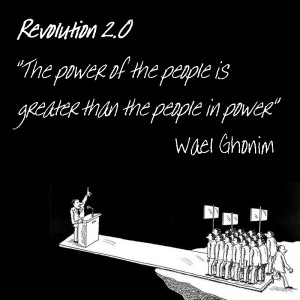New Safer Alcohol Guidelines
New “safe” alcohol guidelines from Nanny State have been drawn up, where “safe” means none, like a nun, more abstinence than absinthe. Beer takes a battering and wine is to be watered down. Livers up and down the country are leaping for joy!

I’ve always been a wine-drinker, but with food at the dinner table from an early age. It created a responsible drinking habit – again with the nun references!
I did try teetotalism for three months at University and pigged out on pizza instead. My partner is more into total-tea-ism.
I actually, never get drunk, well extremely rarely and unintentionally. I drink for pleasure and only with food, never to get drunk. I prefer to stay in control and able to appreciate the taste.
Tongue in Cheek Comment
Actually, all of this is tongue in cheek, wine sloshed around the palate stuff – I just hate being told what to do. Dame Sally Davies, England’s Chief Medical Officer recommends a cup of tea instead of a glass of wine so expect a tax on tea sometime soon. Tea duty! Perhaps we should have a Boston Wine Party or a new political movement like the American Tea Party movement, the British Wine Party movement!
It all seems to be part of the austerity cuts and equalities agenda. Men’s drinking has been cut to the levels of women as it turns out male livers and female livers were not gendered at all and after several female livers took the UK Government to the European Court of Humourous Rights the Government out of spite decided to reduce men’s limits rather than raise female limits to an equal level.
Furthermore, the hypocrisy continues as Parliament is choosing to keep its bars open to serve more than the daily drinking allowance to MPs drunk on their own power.
It’s all clearly an anti-LGBT ploy (or conceivably out of concern for our health and wellbeing – which is an anagram of “binge well”) since it turns out LGBT people are nearly twice as likely to binge drink compared to the more sober hetero/cis population!
A History of Safe Drinking Limits
1984 was a positive drinking utopia compared to now. That year saw the first guidance on gendered drinking produced in a pamphlet called That’s the Limit. Safe limits were defined as 18 “standard drinks” a week for men and 9 for women. At least we now have drinking equality! One standard drink was defined as one alcohol unit – a concept that would be introduced in the next edition. The pamphlet also defined “too much” alcohol as 56 standard drinks a week for men and 35 for women. 1987 saw these limits revised down to familiar 21 units a week for men and 14 for women, with “too much” defined as 36 units for men and 22 for women. That is until today where it has been revised down to zero units for safe drinking and 14 as a recommended maximum should you still feel the need.
BBC Booze Nationality Calculator
The BBC website has devoted public money to shaming us further with their online booze nationality calculator which clearly makes no allowance for sexuality as a factor.
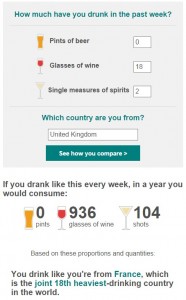
You drink like you’re from France, which is the joint 18th heaviest-drinking country in the world…You are on course to drink about 20.7 litres of pure alcohol over the year, which is 25% more than the average for men in the United Kingdom, and 200% more than the average for women.”
It turns out either I’m French or a bisexual/lesbian British woman but not a gay man.
A Choice between Risk and Pleasure
Drinking more than 14 units *may* increase your risk of dying from an alcohol-related condition by about 1%. That compares to more risky behaviour like a bacon sandwich or watching television for an hour!
Professor Sir David Spiegelhalter, Winton Professor of the Public Understanding of Risk, University of Cambridge, said:
“These guidelines define ‘low-risk’ drinking as giving you less than a 1% chance of dying from an alcohol-related condition. So should we feel OK about risks of this level? An hour of TV watching a day, or a bacon sandwich a couple of times a week, is more dangerous to your long-term health. In contrast, an average driver faces much less than this lifetime risk from a car accident. It all seems to come down to what pleasure you get from moderate drinking.”
Another tempting pleasure might be the latest research from Harvard and the UEA suggesting that a high intake of blackcurrants and a few glasses of red wine could be “sexual superfoods“.
Drinking and Cancer
If wine is so bad for you, presumably most of Europe is dying of cancer, as opposed to stress and anxiety and other smoking and eating habits contributing to poor health outcomes. Other studies into the flavonoids, resveratrol and polyphenols in red grapes have shown wine’s heart protective benefits.
Actually, the Danes and French (big smokers) do unenviously top the cancer league however Portugal (36th) and Spain (34th) who drink more than Britain (23rd) come lower down the table. My plan is to drink more Malbec as the Argentinians come 49th. Clearly, other lifestyle factors are at work.
For women breast cancer risk from all factors but including increased drinking does rise from 10.9% to 12.6% (up to 14 units/week) to 15.3% (14-35 units). Similarly, bowel cancer rises for men and women by around 30% to 7-8% risk once 14 units are exceeded.
Allegedly, there are still health benefits if you are a woman over 55, I’ve never looked forward to ageing so much before! New #alcoholguidelines suck! I need a drink!
